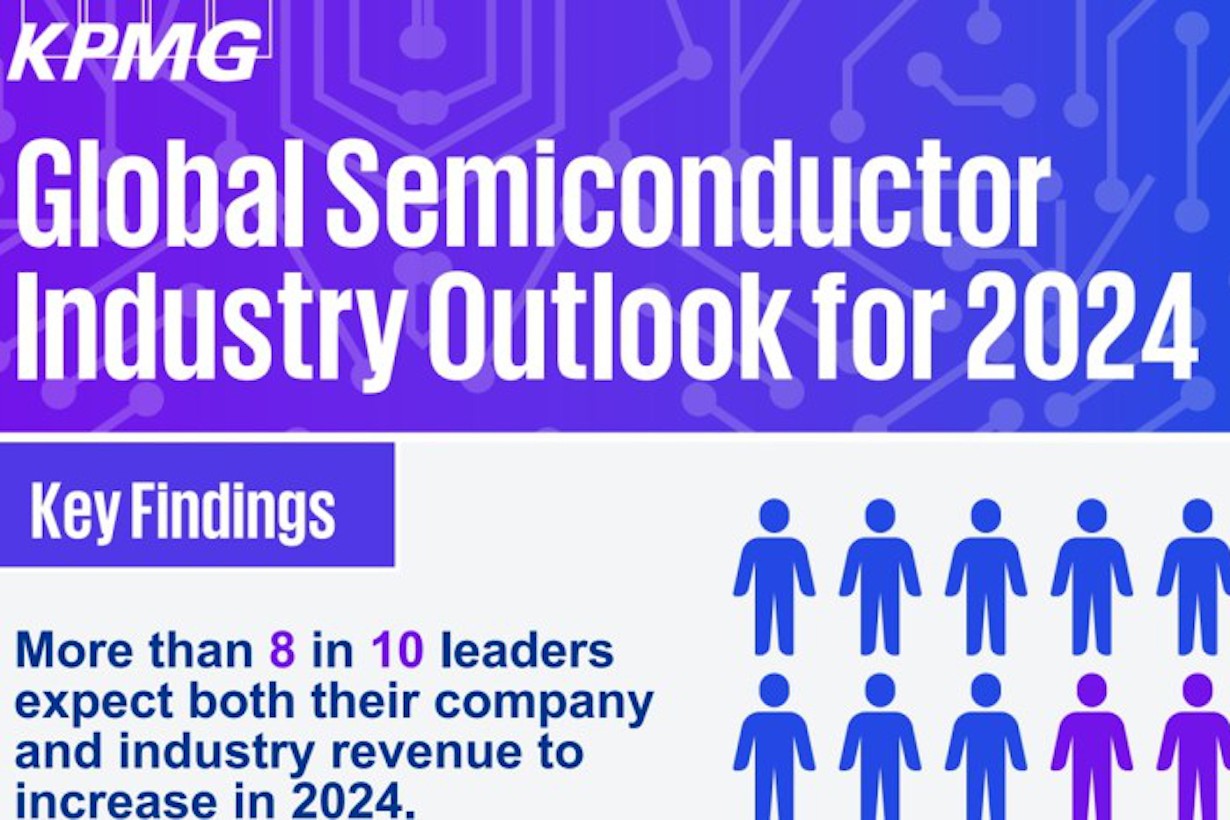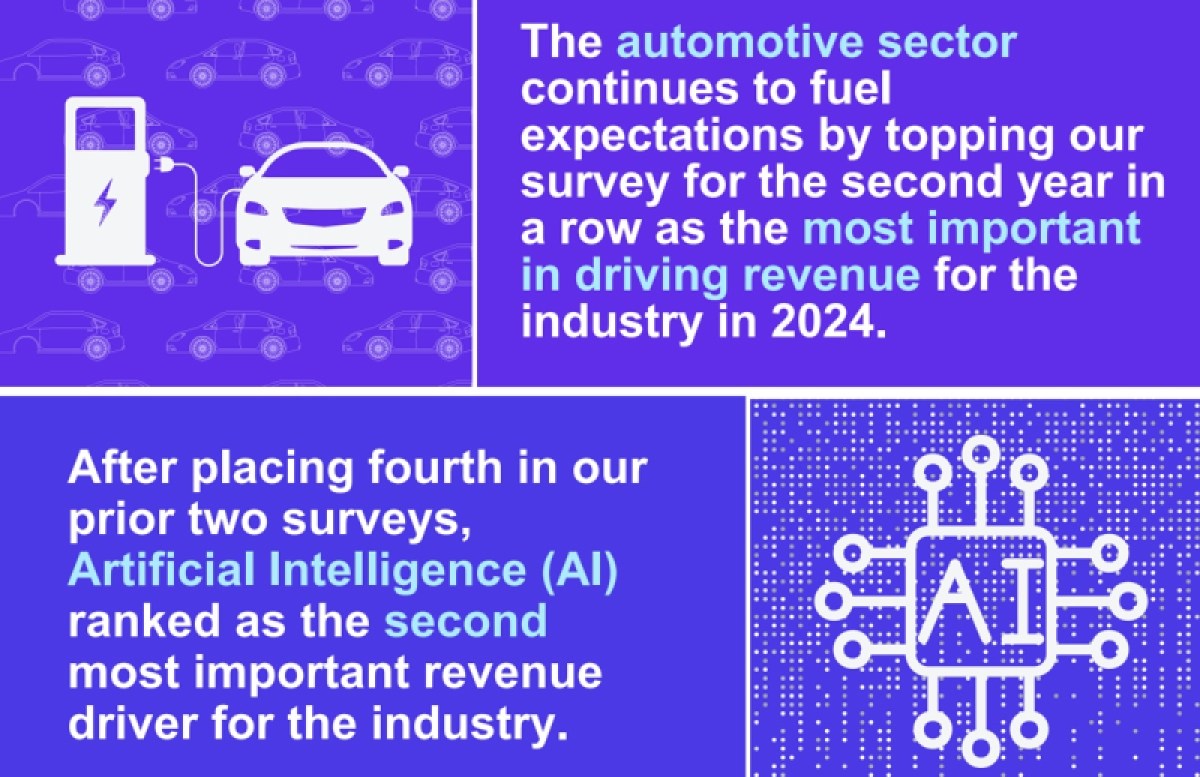CLOSE
About Elements
TANAKA is a leading company in the field of precious metals.
Advanced materials and solutions that support societal progress, the development stories behind them, the voices of engineers, and our management philosophy and vision—
Elements is an online media platform that shares insights that lead to a better society and a more prosperous future for the planet under the slogan “Mastering Precious Metals.”

Automotive will drive demand for semiconductor chips but AI is coming on fast | KPMG

Semiconductor industry executives said automotive will be the top driver for chip revenue, according to a survey by KPMG.
The KPMG Global Semiconductor Outlook report polled 172 global chip executives, and they said for the second year in a row that automotive is the big driver. But artificial intelligence is chasing it fast.
Revenue projections and top sectoral drivers
Executives predict robust industry growth, with 85% forecasting revenue expansion in the near term, a significant upswing from 64% in the prior year. Despite this optimism, projections for rapid revenue growth above 10% have slightly decreased from half of respondents to 40% this year.
The automotive sector retains its pole position for the second consecutive year, solidifying its status as the primary revenue driver for the semiconductor industry. The computerization and electrification of vehicles continue to fuel semiconductor demand, KPMG said.
Wireless communications, once a dominant force, has slipped to third place, sharing the spot with cloud/data centers and the internet of things (IoT). Meanwhile, artificial I\intelligence (AI) has ascended dramatically, securing the second spot as a crucial revenue generator, displacing wireless communications from its former rank, KPMG said.
AI’s ascendancy and strategic priorities
AI is coming on strong as a demand driver for chips, KPMG said.
AI’s meteoric rise in importance marks a significant shift in industry dynamics. Microprocessors, particularly those used for AI, have emerged as the prime product opportunity for future industry growth.
Strategically, implementing generative AI stands out as a top-three priority for semiconductor companies over the next three years, highlighting the growing emphasis on talent development/retention and supply chain resilience.
Talent concerns and strategic responses
It’s a war for talent.
Talent continues to be the most pressing issue, with leaders recognizing the escalating demand for technical expertise. Talent development and retention lead strategic priorities, ahead of supply chain resilience, underlining the industry’s commitment to cultivating a skilled workforce, KPMG said.
The increasing competition for talent from non-traditional semiconductor players amplifies this challenge. In response, semiconductor firms are forming university partnerships, reinforcing their value proposition, and embracing remote/hybrid work setups, the report said.
Inventory projections and emerging technologies
While concerns about semiconductor inventory surplus are mounting, 19% of executives foresee sustained demand driven by emerging technologies like AI, suggesting a belief in continuous growth and no inventory excess over the next four years.
Excess production capacity has risen in industry concerns, emphasizing the need for effective inventory management strategies.
Way forward and expectations
The Global Semiconductor Industry Outlook report, scheduled for release in early 2024, will delve further into these insights and their implications for the semiconductor landscape.
The survey findings illuminate a landscape where automotive dominance in semiconductor revenue faces a formidable challenger in AI, signaling a transformative shift in industry dynamics. Talent acquisition and development remain pivotal, as does the need to navigate inventory challenges in a fast-evolving technological environment, KPMG said.
This article was written by Dean Takahashi from VentureBeat and was legally licensed through the DiveMarketplace by Industry Dive. Please direct all licensing questions to legal@industrydive.com.
![]()









